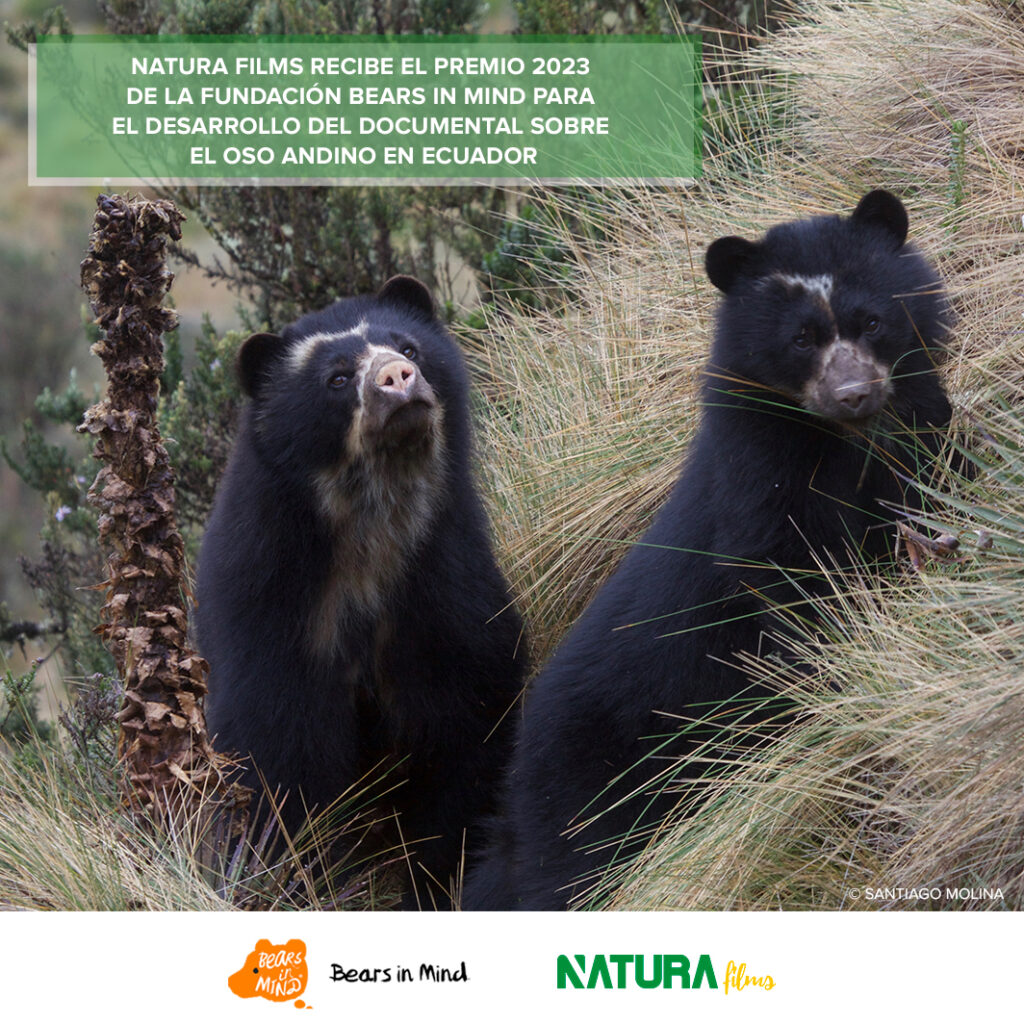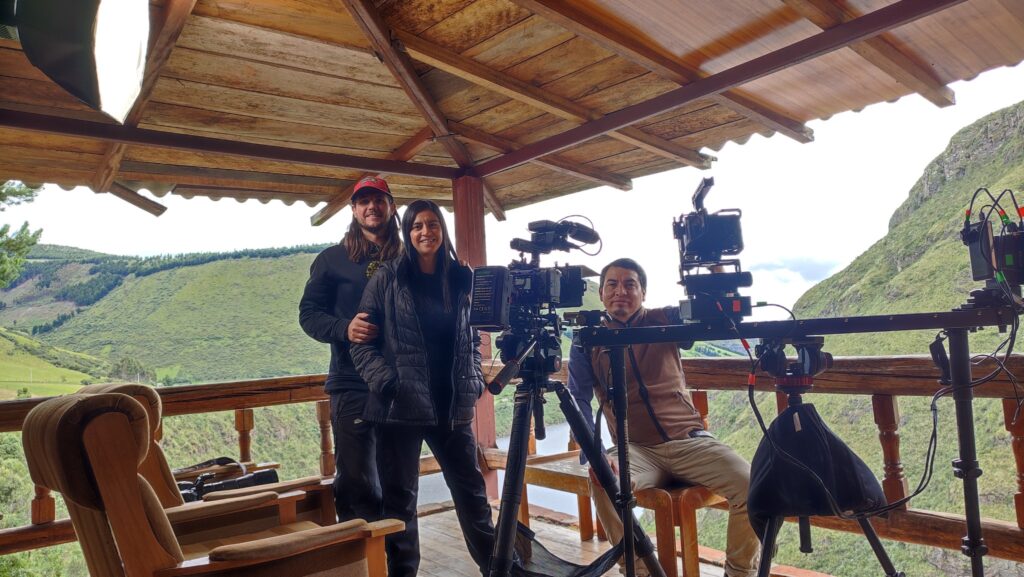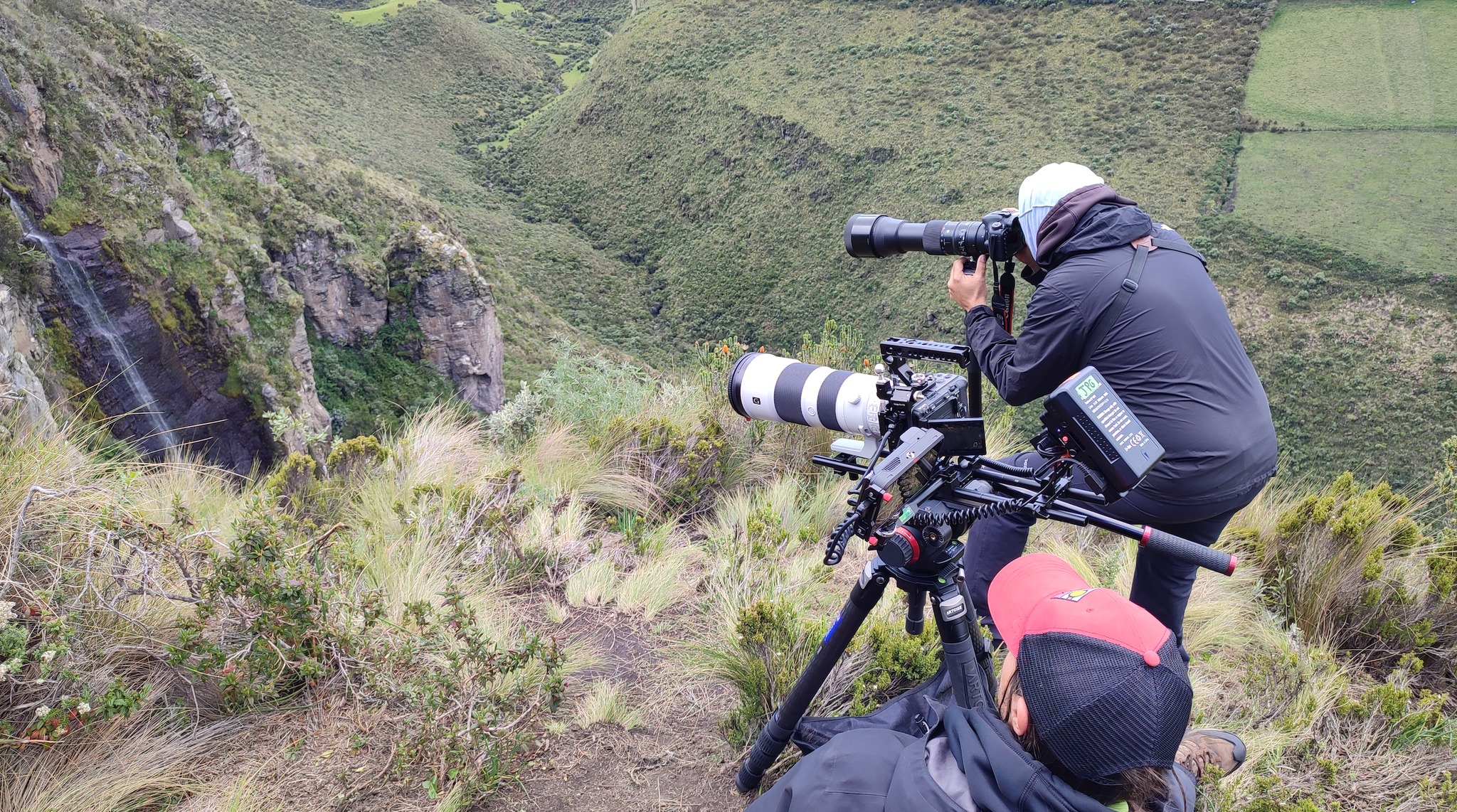“Andean Bear, the conflict over territory” is a film documentary about the Andean bear, an endangered and endemic species from tropical Andes. The Andean bear is one of Ecuador’s emblematic species. Its presence has been more notorious in the last decades due to the reduction of its habitat and the consequent approach to the communities. Agriculture and cattle ranching threaten their territory and we want to tell their story to contribute to the conservation of this endangered species.
In this sense, the team wants to show the reality of the Andean bear in the Metropolitan District of Quito and in the province of Pichincha, the ecology and biology, the conflict with the communities, the commitment of public and private institutions for its conservation and show the research work of Santiago Molina of this emblematic species of Ecuador which little is known, with a strong citizen science focus.

The team has five objectives with this film documentary:
– Reveal the reality of the Andean bear in the Province of Pichincha and the DMQ. The team has the need to make the consequences visible of human behavior on the environment, through all the actors and parties involved in the Metropolitan District of Quito and the different nearby ecosystems where the Andean bear lives.
– To show that the conflict over the territory of the Andean bear is not only between humans and bears, but also between humans and natural resources.
– To make a documentary from a scientific approach and not merely contemplative and idealized.
– To propose ways of coexistence between bears and humans, through environmental education. The team believes that sensitizing the population that coexists with the bear would allow the acceptance and coexistence in the same territory.
– Lastly, the team wants to encourage the protection of this emblematic species of Ecuador, through environmental education, scientific dissemination and support for the development of public policies that protect this species and favor conservation.



